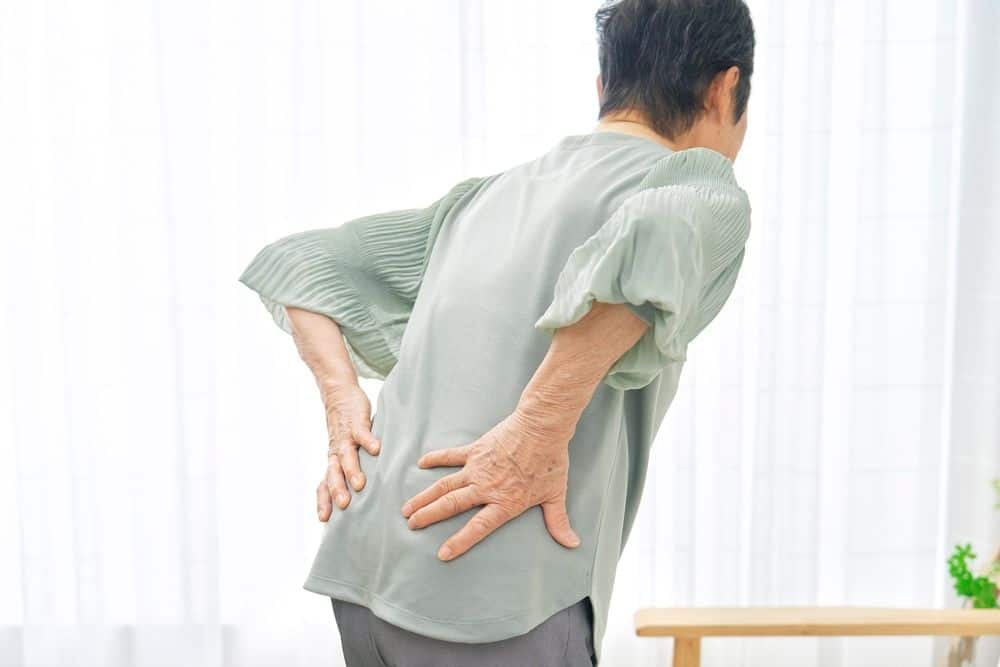Do herniated discs ever fully recover or are they permanent? The answer isn’t always simple because it varies from person to person. In general, most herniated discs have the ability to heal and recover over time. However, this largely depends on many different factors including your age and how quickly you’re able to progress through care and therapy for your herniated disc. This article will explain more about herniated discs and will answer the question “How can you recover from a herniated disc?”
What is a Herniated Disc & Why Does It Happen?
A herniated disc occurs when there is a tear in the outer wall of the spinal disc. This tear allows the soft, spongy center of the disc to push out towards the nerves. When this happens, it is frequently referred to as a “slipped disc”. A slipped disc can cause pain and inhibit movement, especially when bending or moving the spine in certain directions. Herniated discs are quite common and are found in anywhere from 10-25% of the adult population, especially as people age. There are a wide variety of reasons why a person may develop a herniated disc. A few of the leading causes include
- Doing bending/lifting tasks with a poor posture, like rounding the back while lifting heavy items
- A sudden traumatic injury to the back, like a fall or car accident
- A degenerative condition, like osteoarthritis.
- A genetic condition, like a narrowing of the spinal canal (spinal stenosis) – a medical condition like rheumatoid arthritis
- Repetitive stress from doing an activity too many times in a row
Do Herniated Discs Heal?
Most herniated discs can heal and recover fully over time. If you ask yourself, ”Will a herniated disc heal on its own?” the answer is yes! About 80% of injuries heal by themselves within several months along with a combination of conservative treatment, meaning healing that doesn’t involve surgery. This usually includes rest, over-the-counter non-steroidal anti-inflammatory medications (NSAIDs), physical therapy, and chiropractic care. The degree of recovery, however, depends on many different factors, including
- The age and overall health of the patient – As we age, the discs in our spine break down and become less elastic. So while younger people can often “bounce back” from an injury, older people tend to heal more slowly.
- The location of the herniated disc – Herniated discs in the lower back area frequently heal better than those in the neck area. This is because there are more blood vessels in the lower back, which helps promote faster healing.
- The severity of the disc injury – A more severe injury, such as a ruptured disc, will likely take longer to heal than a mild disc bulge.
The general rule is that if you address the cause of the herniated disc and rest the spine, the disc has the ability to heal. If you do not treat the herniated disc and continue to place stress on the spine, the disc can eventually degrade which can result to chronic pain.
When Does A Slipped Disc Become Permanent?

If a herniated disc or slipped disc goes untreated, there is a possibility that it may progress to permanent nerve damage. One long-term complication is saddle anesthesia where the slipped disc puts pressure around the nerves and results to loss of sensation in the lower body, affecting thighs, legs, as well as bowel and bladder movement.
A herniated disc should not be tolerated for a long time. Waiting for the pain to subside doesn’t mean it has healed completely. Instead, while symptoms may disappear, your pain can worsen. Treating herniated discs early on can prevent chronic pain and the need for surgery.
How to Treat A Herniated Disc
Resting for around one to two days is ideal after herniating a disc, but after that, moving a round is best as long as your body permits. Avoid excessive or explosive movements while your body is recovering. Gentle exercises are also a great way to help a herniated disc heal. Your physical therapist or chiropractor can give helpful exercises specific to your needs.
The best way to fully recover from a herniated disc is to receive timely and appropriate treatment. The sooner you address the issue, the better your chances of fully recovering. The most common treatments for herniated discs are:
- Chiropractic Care – Chiropractic care is one of the best ways to treat herniated discs. Chiropractors focus on non-invasive and drug-free methods of treatment such as spinal alignment and exercises.
- Physical Therapy – Physical therapy can be a great way to strengthen muscles and increase the range of motion.
- Medication – If you’ve tried everything else and your herniated disc shows no signs of improvement, talk to your doctor about medication.
- Surgery – You may have slipped disc treatment without surgery. Surgery is recommended if your body doesn’t respond to conservative treatment and if your injury causes numbness or weakness of the hands and foot, or affects bladder or bowel functions.
As mentioned above, herniated discs can heal with the proper treatment. The best way to treat a herniated disc is to rest the spine to give the disc time to heal. This can be done through physical therapy and chiropractic care, which are two of the best ways to treat herniated discs.
What do Chiropractors Do for Herniated Discs?
One of the doctors who specialize in back pain and herniated discs are chiropractors. They are doctors who focus on treating and managing spine injuries, as well as other musculoskeletal issues. Chiropractors focus on natural treatment which includes interventional therapies, manual therapy, exercise therapy, and other modalities designed to help heal your injury and provide you with pain relief.
For example, our chiropractors at Affordable Chiropractic will assess your spine to identify any misalignments and recommend a course of treatment. This may include gentle spinal manipulation and soft tissue therapies such as massage. They may also prescribe you some exercises to do at home, such as stretching, yoga, and strengthening core muscles. Our chiropractic management can also include advice on posture, footwear, and other factors that can affect the health of your back.
We’re ready here at Affordable Chiropractic to help you recover and get you back up to a pain-free life. Contact us today to start your personalized chiropractic care.

